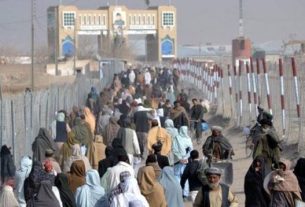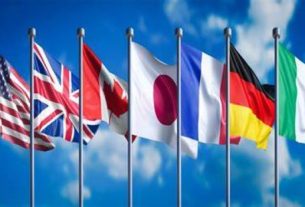It was to be a centrepiece of United States President Joe Biden’s visit to the Middle East on Wednesday: a trip to Jordan to meet a range of Arab leaders amid Israel’s incessant bombing of the Gaza Strip.
But on Tuesday, Jordan cancelled that summit after an explosion at the al-Ahli Arab Hospital in Gaza City killed at least 500 people and sparking global outrage.
Palestinian officials have accused Israel of bombing the hospital. Israel, meanwhile, has claimed it has evidence suggesting that it was a rocket fired by Palestinian fighters that blew up the hospital.
Jordon’s decision to call off the summit underscores a complex history with Israel that stretches back to the very founding of the latter state and continues to influence regional dynamics.
The two neighbours spent decades officially at war but always maintained contact, which eventually led to the signing of a peace treaty in 1994. Yet their relationship has remained uneasy with the shadow of the Palestinian struggle for statehood and justice hanging over it.
Turning back the decades
More than 700,000 Palestinians were ethnically cleansed from their ancestral lands in 1948 by Jewish militias and Israeli forces in an event the Palestinians know as the Nakba, or “catastrophe” in Arabic.
In the same year, shortly after a United Nations plan to partition Palestinian land at the end of a British mandate, a military coalition of Arab states which also included Jordan entered the territory to fight Israel.
By the end of the war, Jordan was in control of East Jerusalem and the West Bank.
Jordan was also a key participant in the Six-Day War in 1967, having aligned itself with Egypt’s then-President Gamal Abdel Nasser.
By the end of that war, which marked a major victory for Israeli forces, Jordan had lost control of both East Jerusalem and the West Bank.
Jordan and Israel, which were believed to have maintained backchannels even during times of war, signed a peace treaty in 1994. Jordan became the second Arab country after Egypt to establish diplomatic relations with Israel.
How did the treaty change things?
The peace treaty came about shortly after the first of the Oslo Accords in 1993, which established the Palestinian Authority. Israel and Jordan also signed a declaration at the US White House that committed them to end enmities and achieve lasting peace.
The peace deal increased security cooperation between the two countries and paved the way for setting up ambitious economic projects. So-called Qualifying Industrial Zones in Jordan allowed it to export duty-free commodities to the US if they had specified Israeli inputs. This arrangement later morphed into a free trade agreement between Jordan and the US.
Israel and Jordan reached an agreement to address the latter’s considerable water concerns, committing Israel to share its water. In 2014, they signed a deal for gas from Israeli fields to be supplied to Jordan for a 15-year period.
Ebb and flow of relations
But the fact that the Palestinian issue remained unresolved, along with several high-profile incidents over the years, has affected relations.
A Jordanian soldier opened fire on a group of Israeli schoolgirls in 1997, killing seven. In the same year, Mossad agents who had been sent to Amman to assassinate Hamas political leader Khaled Mashal were caught. Jordan demanded that Prime Minister Benjamin Netanyahu hand over the antidote to the substance that was used to poison Mashal, but he did so only after then-US President Bill Clinton directly intervened.
More recently, a 17-year-old Palestinian in 2017 stabbed an off-duty security guard at the Israeli Embassy in Jordan, which prompted the security guard to shoot his weapon and kill the Palestinian and another man. The embassy was closed for six months and Netanyahu hailed the guard when he went back to Israel.
In late 2019, Jordan’s King Abdullah II said relations with Israel were “at an all-time low”.
Since then, relations appeared to have improved, with several top-level meetings taking place, including the first visit by an Israeli president to Jordan last year.
Israel’s war on Gaza could reverse that trend.
Jordan as custodian of Al-Aqsa
The Hashemite royal family of Jordan, which has ruled the country since 1921, has also served as the custodian of Jerusalem’s Al-Aqsa Mosque for nearly a century.
In 1924, the Supreme Muslim Council, which was the highest body in charge of Muslim community affairs in British-controlled Palestine at the time, chose a member of the Hashemite dynasty as the custodian of the mosque. Al-Aqsa is among Islam’s holiest sites and one of the oldest surviving examples of Islamic architecture.
The Jordanian royal family has renovated Al-Aqsa several times in the past century.
Jordan’s concerns today
Yet today, Jordan also has more practical challenges too, as Israel’s war on Gaza intensifies.
Jordan is reliant on its water agreements with Israel. Its relations with Israel and the US serve as a boost to its economy, which suffered a blow because of its dependence on tourism during the COVID-19 pandemic.
But Jordan cannot afford to see the war escalate.
It has condemned Israel’s bombing of Gaza and the serious humanitarian concerns that have arisen as a result of it, consistent with its advocacy for the resolution of the Palestinian issue.
Already host to millions of migrants from Palestine, Syria and Iraq, Jordan is also highly wary of a new influx of Palestinian refugees, who have historically been driven out of their homelands by Israel to never be able to return.
Jordan has insisted that Palestinians need to remain in their homeland if they are to form a state of their own in the future.__AL Jazeera





